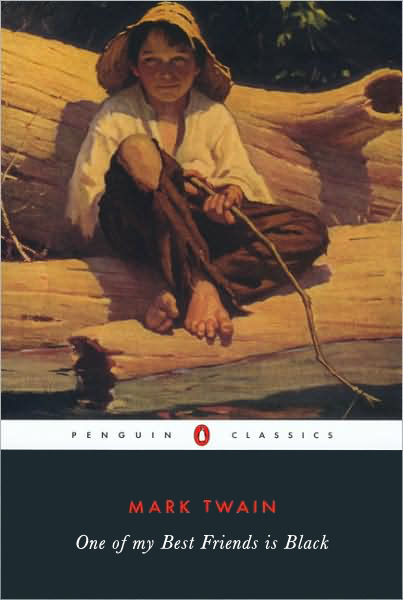Happy new year! It's our inaugural V&S of 2011! Let's see what scraps I've been collecting...
First of all, let's celebrate the release of the expurgated version of Huckleberry Finn by going all the way and changing the title. Better Book Titles has helped us out:
Somewhat related, a friend of mine pointed me to this very cool website that tracks what's happening in the Civil War day by day in real time, 150 years later. They are also on Twitter. There's a whole bunch of mustering going on at Fort Sumter. Maryland is on the fence about secession. It's all very nerve-wracking.
In obituary news, I enjoyed reading about Catherine "Kay" Kerr, one of the founders of Save the Bay, an organization important to me, living where I do. I remember stuffing envelopes for them as a very young person. They really did keep San Francisco Bay from being largely filled in. Not that this was Mrs. Kerr's only passion. "When she wasn't fighting developers, Mrs. Kerr enjoyed gardening, playing bridge and reading." Isn't that delightful?
And finally, a bit of snark to lighten your day. Deadspin has the story: "In 1974, a Clevelander wrote the Browns complaining of the menace posed by the then-fad of throwing paper airplanes, and implicitly threatened litigation. The Browns' response is just about the most awesome thing ever committed to paper." You'll wish you wrote it yourself.

2 comments:
The more I hear and read about the new version of "Huckleberry Finn," the more I find myself wondering about inclusive language lectionaries. Re-wording Mark Twain's novel seems intuitively wrong to me - and yet for many years of my life re-wording the weekly Scripture readings has seemed almost as intuitively right. As I can't put my finger on the difference between the two cases now, I am beginning to wonder more about both of them. Do you happen to have any thoughts about this?
Maybe the difference is that with Huck Finn, we are trying to change it because it embarrasses or offends us, and with the Bible we are changing it because we think there's MORE to be said. A very subtle distinction, though, and certainly one that can easily slip from one side to another.
I also think there's something very different about changing a single author's words which carry a very specific intention--one of which is completely congruent with the use of the word, to changing the language of what is a community's text, used and owned by all. But I may be getting myself in hot water, there.
The thing is, Mark Twain knew full well that "nigger" was a diminishing term and he used it in part for that very reason. And as others have pointed out, why is "nigger" offensive and "slave" not? I think the discomfort with the word is part of what Twain intended.
So those are my off-the-cuff thoughts which I know need refinement.
Post a Comment